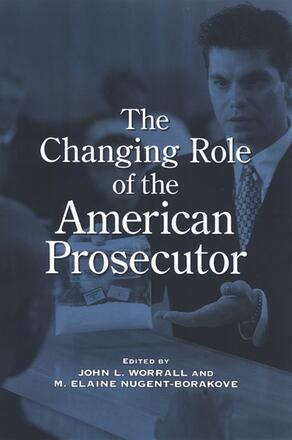
The Changing Role of the American Prosecutor
Alternative formats available from:
Looks at how prosecution of offenders is evolving in the contemporary legal milieu.
Description
Leading prosecution researchers throughout the United States are brought together in this book to illuminate the new environment of prosecution in America, the prosecution of troubling and emerging crime problems, prosecutorial problem-solving and community prosecution, and the future of prosecution in the twenty-first century. The contributors explore how American prosecutors are moving away from a traditional, reactive approach to the crime problem, and, instead, how they are developing creative problem-solving strategies for dealing with crime and disorder.
John L. Worrall is Professor of Criminology at the University of Texas at Dallas and the author of many books, including Crime Control in America: An Assessment of the Evidence and Criminal Procedure: From First Contact to Appeal. M. Elaine Nugent-Borakove is Director of the Office of Research and Evaluation at the American Prosecutors Research Institute.
Reviews
"…provides a fascinating look at the potential promise a prosecutor's power presents for rectifying many of the ills that currently afflict the criminal justice system." — Harvard Law Review
"Worrall and Nugent-Borakove argue that as prosecutors are becoming more open to public scrutiny and organized pressure, they are also becoming more innovative and proactive in their efforts to control crime … Many of the contributors are themselves empirical researchers, and seem well acquainted with recent studies. By organizing and applying these recent findings, they make them accessible to students." — CHOICE
"The strength of this book is the novelty of the topic. Prosecutors have recently come to the forefront of court research. The contributors give a fresh look into the twenty-first-century prosecutor. They focus on the politics and the new social policy that the new 'American Prosecutor' upholds. No longer is today's prosecutor only interested in convictions. They are interested in crime prevention, which requires a proactive approach rather than merely reacting to situations." — Jeremy D. Ball, Boise State University